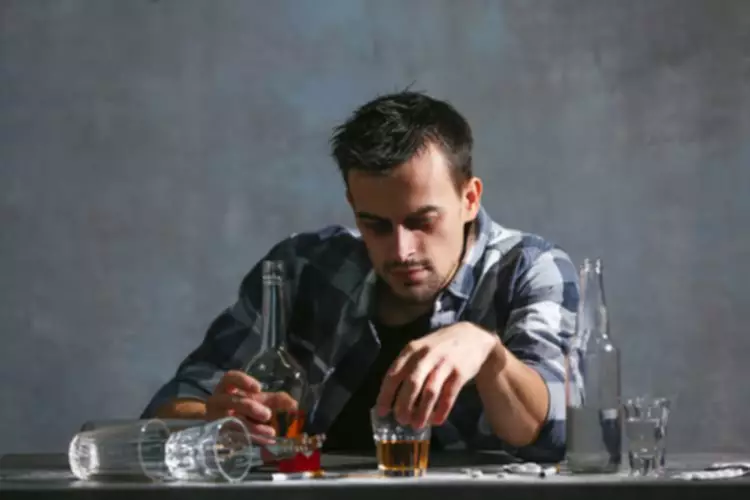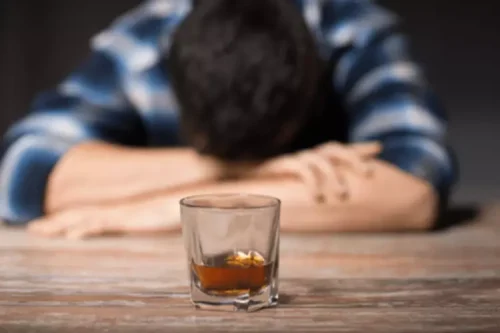
It’s difficult to predict who will and who won’t experience alcohol withdrawal — and how severe it will be. For those who don’t require inpatient treatment, it can still make a big difference to seek support. This can look like finding alcohol support groups and looking for sober communities, either online or in your area. what happens when you stop drinking Connecting with others who have been through the withdrawal process can provide encouragement and remind you that things will get better with time. While everyone’s experience is different, learning more about the typical withdrawal timeline can help you set expectations and make a plan to get through challenges.
Does alcohol affect sleep?
If you manage to limit alcohol consumption beyond a monthlong break, it could improve your heart health and reduce the risk of stroke and certain cancers. Regular drinking raises estrogen levels and reduces testosterone. For men, this can look like lowered libido and erectile dysfunction, as well as decreased muscle mass. For women, it can increase the risk of breast cancer, impair bone health, and lead to mood changes. That said, If you’ve been drinking excessively, then stopping drinking cold turkey can lead to withdrawal symptoms.
- “You get the best benefit from alcohol when you drink in moderation.
- Individuals should be prepared to be uncomfortable during this period and have medical help available if needed.
- When you’re ready to stop, there are lots of benefits – from reducing your blood pressure and better sleep in the short-term, to many other important longer-term health benefits.
- It is potentially life-threatening, so it is essential to seek medical attention immediately if you experience such symptoms.
Tips for quitting alcohol
One margarita may contain 300 calories or more—mostly from sugar. (A delicious piña colada might have 450 calories!) One study found men consume an additional 433 calories on those days they drink a “moderate” amount of alcohol. Cut those from your diet—and don’t replace them with desserts—and you’ll start to lose weight without much effort. Experts say there are benefits to quitting alcohol for a short period, even if you’re a social or moderate drinker. If you’re considering a break from alcohol, it might also be helpful to think about why you drink. But what exactly happens to the brain when a person who regularly drinks goes cold turkey — even for a short while?
Alcohol and Bupropion: 4 Things to Know About This Risky Combination
Serious alcohol misuse can decrease your lifespan by as much as 28 years compared to those who don’t drink. This huge change in lifespan is due to the numerous medical problems that alcohol can cause. Heavy alcohol use can affect the health of your heart, brain, kidneys, liver, pancreas and digestive tract. It can also increase your risk for many different types of cancers.
For one, most research related to brain changes after alcohol use has studied the brains of heavy drinkers or people who misuse alcohol and then become sober. If physical symptoms last beyond seven days, they will generally be over sometime in the middle of week two. After the intense physical strain of withdrawal, people will often be fatigued. Non-physical symptoms, like cravings and desire for the comfort alcohol provides, may become more noticeable as the distraction of physical symptoms subsides. The first step to address concerns about alcohol use is to consult a healthcare provider.

What is the treatment for alcohol withdrawal?

This explains random breakouts and any sensitivity you may be experiencing, as your skin barrier is weakened. Severe dryness is also a sign that your pH level is off-balance, indicating that your acid mantle is too alkaline. If you know there’s going to be more than one margarita on the cards, a little prep beforehand could come in handy for the following day. Take a couple of Biocol labs’ Something For a Mini Hangover capsules (a clever concoction of choline, thistle and artichoke) prior to drinking to help break down the tequila-induced toxins in your body. Alcohol use disorder can include periods of being drunk (alcohol intoxication) and symptoms of withdrawal. Here are some of the improvements you could see from cutting out alcohol, in the short- and long-term.
Long-Term Benefits of Quitting Alcohol
- Your calorie intake will be about 9,000 calories less, leading to a potential drop in weight of about three pounds.
- Whether you’re challenging yourself to a no-drink stint (hello, Dry January) or considering cutting back on alcohol in general, your body can experience some real changes when you stop drinking.
- Talk therapy is an important part of treatment for alcohol use disorder, but Dr. Streem says just about anyone who is making a life change, like quitting drinking, can benefit from therapy.
- He noted that people of Chinese and Indian descent do not benefit from drinking alcohol due to a genetic reason that isn’t fully understood.
- Feeling at your best physically can boost resilience and emotional strength, equipping you to weather challenges that trigger the desire to drink.
Drinking too much alcohol can cause many problems and unwanted effects on your health and well-being. But some people might think they can’t quit alcohol because they’re used to drinking too much or for too long. In reality, it’s never too late for you to stop drinking alcohol and recover from its harms.
What Happens to Your Body When You Quit Alcohol for a Month?
This may include alcohol-free events or socializing with people who don’t drink. Swap alcohol for non-alcoholic beverages such as mocktails or soda water with lime. The rate at which the liver breaks down or metabolizes alcohol depends on several factors like your genes, age, and weight, how much alcohol you consumed, and what you’ve eaten. Depending on how it’s measured, alcohol can stay in your system for 6-72 hours in most cases.

How Alcohol Affects Your Seizure Risk
Exploring, in writing, what you find difficult and when you most want to drink can help you notice patterns that offer more insight into your alcohol use. Comparing the emotions that come up when you have a drink with the feelings you experience when abstaining also helps you recognize when drinking doesn’t fix the problems you’re trying to manage. You may not need to completely reinvent your life to quit drinking, but making a few changes in your surroundings to help avoid alcohol triggers can make a big difference. To stop drinking alcohol, you first need to understand your relationship with drinking. From there, you may need social support, consistent self-care, and new routines that can help redirect your mind. The Recovery Village Atlanta offers comprehensive addiction treatment for drug and alcohol addictions and co-occurring mental health conditions.
